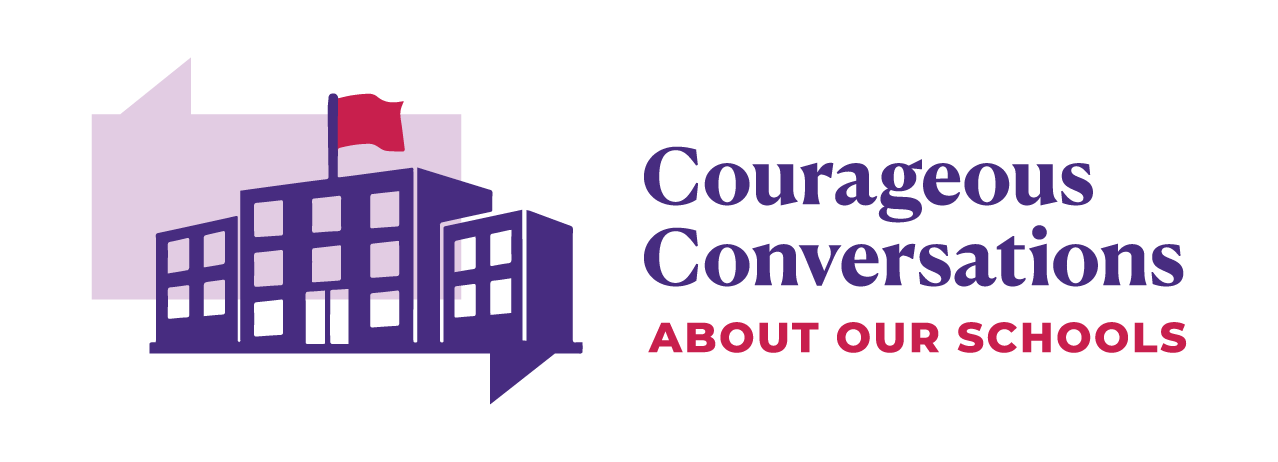Do Discomfort, Anguish, and Divisive Concepts Belong in the Classroom? A Conversation about Free Speech in Public Schools (Ep. 22)
Episode notes:
Since 2020, nearly 20 states have passed legislation prohibiting public school educators from teaching “divisive concepts” or any content that might cause students to feel “discomfort, guilt, anguish or any other form of psychological distress” because of their race or sex. Florida and several other states have also adopted new policies that ban instruction about gender and sexual identity, and teachers who violate these policies can be sued, fired and, in some cases, have their licenses to teach revoked.
Critics say these laws violate free speech protections, and participants in this episode say they limit opportunities for students to have civil and productive conversations about issues that may, at times, be controversial or unsettling. “It's impossible to teach history in a way that'll make sure nobody's ever feeling uncomfortable,” says history professor Sophia Rosenfeld. “Slavery, for instance, is a fact of American history. If you leave it out of the curriculum, you've misrepresented our past. It's bound to make people feel uncomfortable…It should make people feel uncomfortable.” Deborah Appleman, a professor of education and former high school teacher, adds, “You can't learn about the Holocaust or learn about slavery without feeling discomfort, guilt, and anguish.”
Libby Snowden, a college senior, offers this perspective: “A lot of the terms used in that legislation tend to be very broad and lead to a chilling effect … where we have teachers who are afraid to bring up certain topics in class because they don't know what counts as divisive or inappropriate for the age group. I think that really speaks to the value of the local community, school boards, parents being involved and really having conversations about what is being taught in classrooms. We have shifting cultural norms right now. It is becoming much more socially acceptable to have gay characters in children's movies, gay characters in books…It's really important to engage with each other about how we are going to handle that in our schools.”
Snowden also believes students must feel comfortable sharing unpopular opinions. “I can think of situations in high school where somebody expressed a viewpoint in class, and even if it wasn't maybe pounced on in the moment, there was chatter in the hallways, there were social media posts, word would get around. I definitely think it is the responsibility of the teacher to set the expectations and the ground rules.”
Later, speaking about her current experience as a college students, Snowden says, “I've been really lucky. I've gotten to be involved in an organization that's all about free speech and intellectual diversity on campus. Every week we host events that we bring in largely conservative speakers on an otherwise very liberal-minded campus. It's awesome. People come in, listen to the speaker, and hear what they have to say. We don't get disrupted when we have question and answer. We have respectful questions, and even if they are challenging, they're asked in good faith.”
Appleman says these kinds of learning experiences must begin when children are young. “If students don't learn how to do it early on, then no wonder they have issues expressing themselves freely and with civility when they're in high school and college. I don't think it's ever too early to teach kids, number one, to speak their mind and two, to not hurt people when they're doing it.”
Featured guests:
Libby Snowden, a senior at Yale University, is majoring in chemistry. Most recently from Norfolk, Virginia, Libby’s experiences moving around the country have led to a heightened interest in hearing diverse perspectives on controversial issues. She is passionate about the value of free expression and has served on the board of the Buckley Institute, an organization that promotes free speech and intellectual diversity on campus. She has also served as an intern at the Foundation for Individual Rights and Expression.
Sophia Rosenfeld is Walter H. Annenberg Professor of History and Chair of the Department of History at the University of Pennsylvania, where she teaches European and American intellectual and cultural history with a special emphasis on the Enlightenment, the trans-Atlantic Age of Revolutions, and the legacy of the eighteenth century for modern democracy. She is the author of A Revolution in Language: The Problem of Signs in Late Eighteenth-Century France (Stanford, 2001); Common Sense: A Political History (Harvard, 2011), which won the Mark Lynton History Prize and the Society for the History of the Early American Republic Book Prize; and Democracy and Truth: A Short History (Penn Press, 2019). Read more >
Deborah Appleman is the Hollis L. Caswell Professor of Educational Studies at Carleton College. Professor Appleman taught high school English for nine years before receiving her doctorate from the University of Minnesota. She is the author of more than dozen books on literacy education, including Critical Encounters in Secondary English: Teaching Literary Theory to Adolescents (winner of the Richard A. Meade Award); Adolescent Literacy and the Teaching of Reading; Adolescent Literacies: A Handbook of Practice-Based Research (co-editor with Kathleen Hinchman ); Teaching Literature to Adolescents, (with Rick Beach, Robert Fecho, and Rob Simon); Uncommon Core; and Reading Better, Reading Smarter. Her book, Word No Bars Can Hold: Literacy Learning in Prison draws from her experiences teaching in a high-security prison for men. Her most recent book, Literature, and the New Culture Wars examines current political challenges in the teaching of literature.
Related articles:
Listen & Subscribe
Choose your preferred player:












